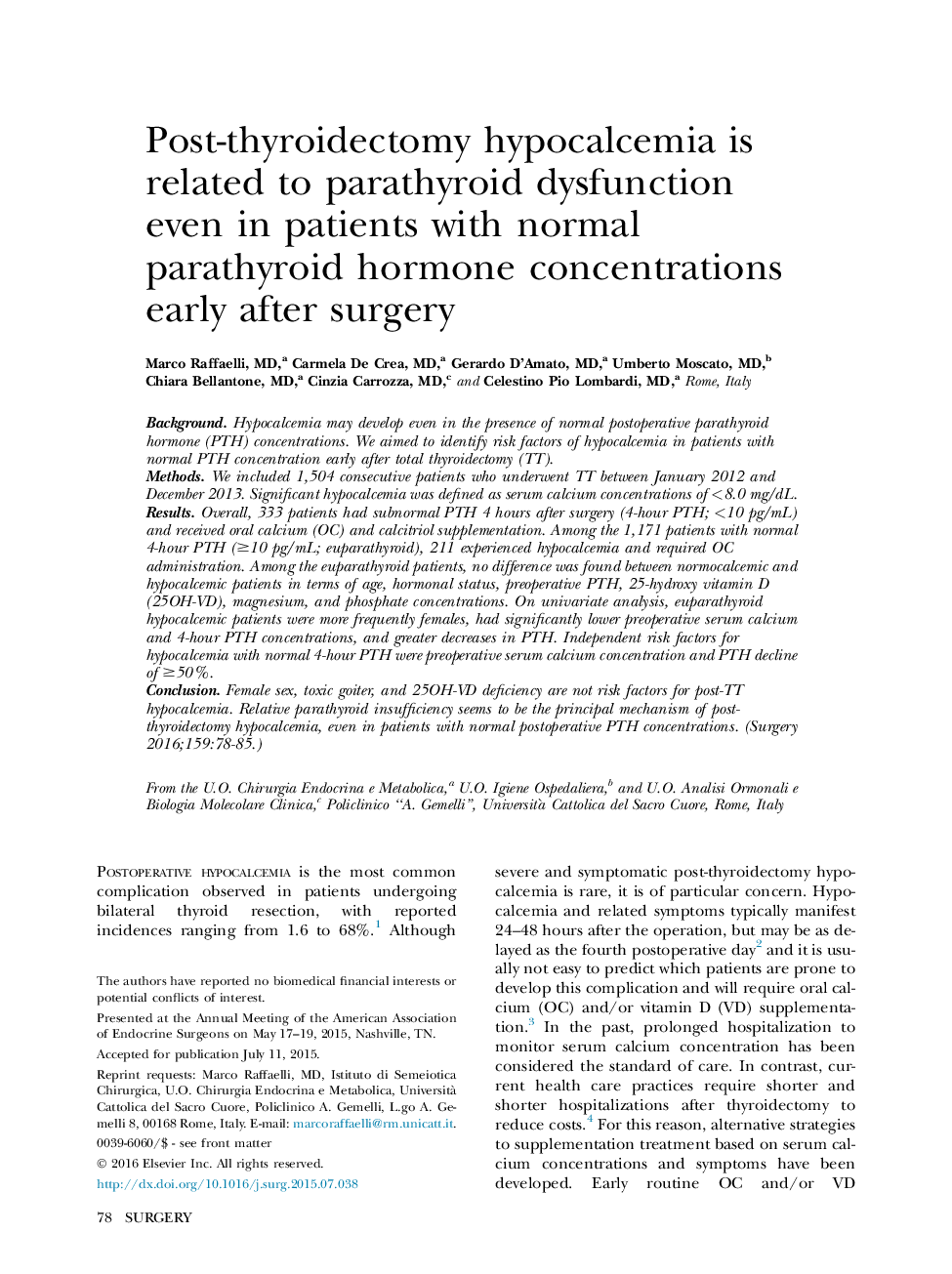| Article ID | Journal | Published Year | Pages | File Type |
|---|---|---|---|---|
| 4306619 | Surgery | 2016 | 8 Pages |
BackgroundHypocalcemia may develop even in the presence of normal postoperative parathyroid hormone (PTH) concentrations. We aimed to identify risk factors of hypocalcemia in patients with normal PTH concentration early after total thyroidectomy (TT).MethodsWe included 1,504 consecutive patients who underwent TT between January 2012 and December 2013. Significant hypocalcemia was defined as serum calcium concentrations of <8.0 mg/dL.ResultsOverall, 333 patients had subnormal PTH 4 hours after surgery (4-hour PTH; <10 pg/mL) and received oral calcium (OC) and calcitriol supplementation. Among the 1,171 patients with normal 4-hour PTH (≥10 pg/mL; euparathyroid), 211 experienced hypocalcemia and required OC administration. Among the euparathyroid patients, no difference was found between normocalcemic and hypocalcemic patients in terms of age, hormonal status, preoperative PTH, 25-hydroxy vitamin D (25OH-VD), magnesium, and phosphate concentrations. On univariate analysis, euparathyroid hypocalcemic patients were more frequently females, had significantly lower preoperative serum calcium and 4-hour PTH concentrations, and greater decreases in PTH. Independent risk factors for hypocalcemia with normal 4-hour PTH were preoperative serum calcium concentration and PTH decline of ≥50%.ConclusionFemale sex, toxic goiter, and 25OH-VD deficiency are not risk factors for post-TT hypocalcemia. Relative parathyroid insufficiency seems to be the principal mechanism of post-thyroidectomy hypocalcemia, even in patients with normal postoperative PTH concentrations.
